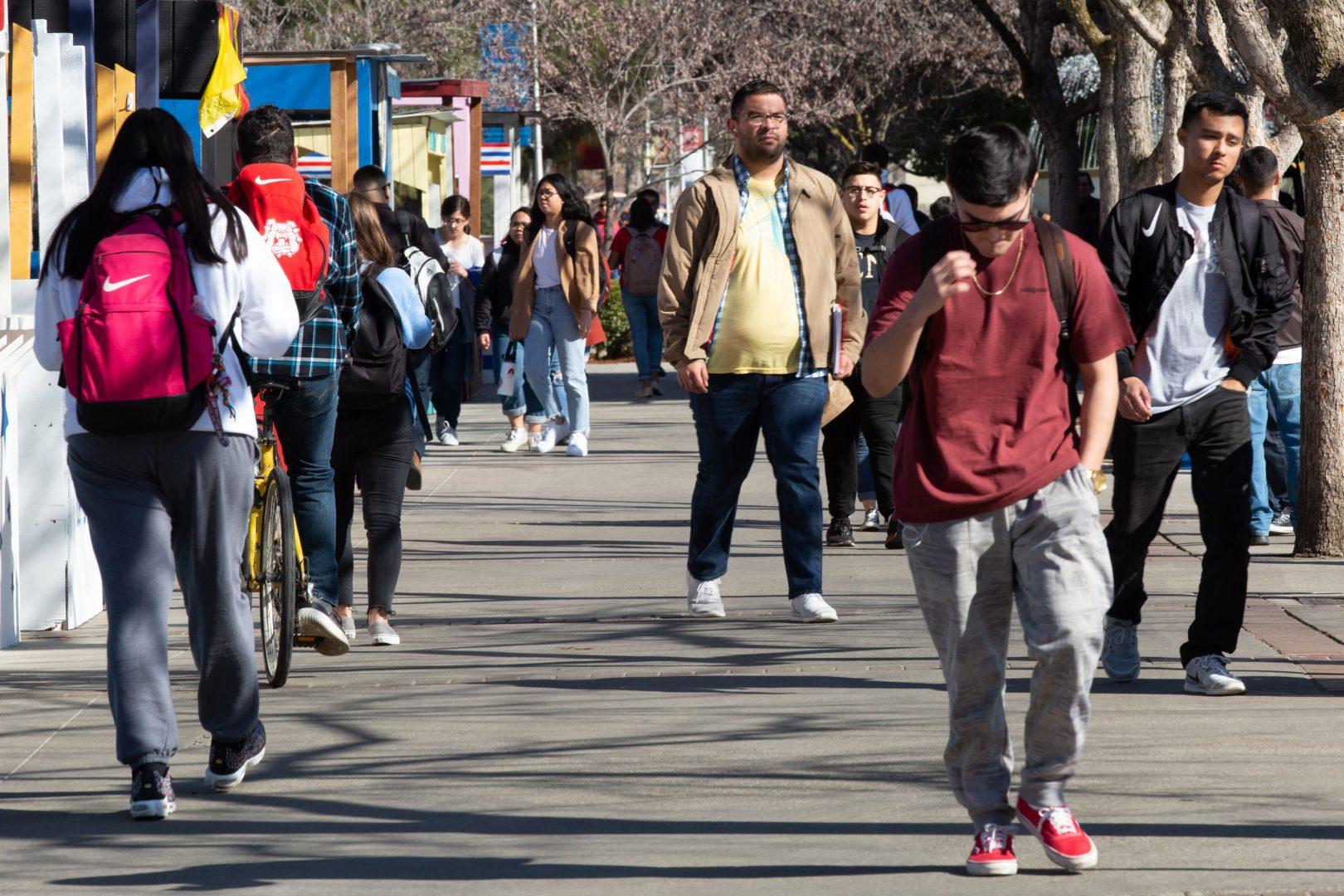Every 10 years, the U.S. census is taken across the nation to count state populations. The number of representatives in Congress depends on the census. Simply put, the bigger the population, the more representation a state gets in Congress.
“If people do not count themselves, we can lose representatives in Congress,” said Elizabeth Rocha Zuniga, ASI vice president of external affairs. “Right now, there’s a lot of conversation about California losing two representatives.”
Rocha Zuniga is working with Executive Director of Governmental Relations Larry Salinas on raising awareness on campus to get more students engaged and knowledgeable. Like last semester, they hope to host another workshop to bring panelists from different community organizations to speak on campus.
The census serves a good purpose but that purpose is unknown to many, Rocha Zuniga said.
Community organizations like the Dolores Huerta Foundation and Hmong Innovating Politics are still looking for volunteers to help spread the word. In Fresno County, the census is paying up to $17.50-$18 an hour for census takers.
“It’s a quick way to make cash and to be involved in getting people to participate,” Rocha Zuniga said.
However, what may seem like an easy questionnaire to most Americans, is actually scary to many, especially for marginalized communities.
“The Central Valley is one of the worst places for counting people and there’s a few reasons why,” said Amber Crowell, assistant professor of sociology.
“One, is we have a lot of rural communities and rural communities are always difficult to get to and they’re always difficult to count. We have a lot of low-income people here so they’re very difficult to count because they don’t tend to stay in one place.
“Another big issue with the Central Valley is that we have a lot of immigrants and so immigrants are always kind of difficult to count especially when documentation status is an issue.”
Crowell does analysis work by studying neighborhoods, using census data. She stresses the importance of counting everyone but it is a task harder to accomplish than said.
According to a 2018 report by the United States Interagency Council on Homlessness, there’s nearly 130,000 people in California experiencing homelessness. This makes it especially hard to count people when they’re constantly displaced and unaccounted for.
“If somebody in your household is undocumented, they’re less likely to fill out government forms and they’re less likely to talk to somebody who is volunteering or working for the government,” Crowell said.
Last year, the Trump administration made efforts to put the citizenship question on the 2020 census. The commerce department argued that getting that information would help the justice department enforce the voting rights act. That argument was rejected.
Even after the Trump administration failed to add the citizenship question, people remain fearful because they feel as if their citizenship status will be used to target them, Crowell said.
“It’s really, actually, really important that non citizens get counted too because there’s decisions made in government that affect them and so it’s important that they be represented as well,” Crowell said.
About half of Fresno State’s student population is Hispanic. Last semester, Fresno State made the list for the top 25 best national universities because of its large rates of “low-income and first-generation” students.
“It’s so important that students get counted too. Especially since so many of our students are from the area, it’s, you know, being counted is not just a way to be represented as a student population but it’s also boosting representation for the valley,” Crowell said.




